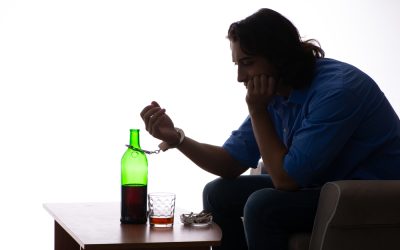In your journey toward sobriety and recovery from addiction, understanding peer pressure plays a crucial role. It’s not just a challenge faced by teenagers; adults in various settings, including those in drug rehab or pursuing sobriety, encounter it too. Peer pressure is the influence exerted by a peer group, encouraging individuals to change their attitudes, values, or behaviors to conform to group norms. What is the effect of the combined direct and indirect social influences—peer pressure (PP)—on a social group’s collective decisions? We present a model that captures PP as a function of the socio-cultural distance between individuals in a social group. Using this alcoholism symptoms model and empirical data from 15 real-world social networks we found that the PP level determines how fast a social group reaches consensus.
How to Handle Peer Pressure Related to Alcohol Use
Therapists can offer tools and techniques that align with your recovery journey, ensuring you stay focused on your goals. This involves explicit suggestions or challenges to your decision-making regarding substance use. Someone might directly offer you a drink or a drug, or https://velopyrenees.fr/sober-living/fraudulent-sober-living-homes-subject-of-new-2/ challenge your commitment to sobriety in a group setting. It’s an overt attempt to sway your actions, usually for the peer group’s conformity. Engaging with friends who support your recovery can enhance your success. They offer a sense of belonging, understanding, and accountability—all essential components in maintaining sobriety.

Establish Positive Friendships

Engaging in these supportive environments can empower you to make positive decisions, steering clear of the negative impacts of peer pressure. When tackling the journey of addiction recovery, the role friends play can’t be overlooked. Your social circle has a profound impact on your behavior and decision-making. In fact, studies show that social influence is a major factor in both initiating and sustaining substance use.
- The previously mentioned study about substance abuse highlights that just as peers can encourage harmful behaviours, they can also play a role in helping others adopt healthier lifestyles.
- Peer pressure is a powerful social force that influences behavior, and it can be especially problematic when it comes to alcohol and drug use.
- Chanel describes herself as a humanistic therapist focused on building rapport and trust.
- In the journey of addiction recovery, understanding how to overcome negative peer pressure is crucial.
- Building good self-esteem will help them stay away from groups with negative influences.
Academic Peer Pressure
- Over time, constant exposure to peer influence can impact self-perception and behaviour, leading individuals to question their own choices or preferences.
- If a popular friend wants to save money to buy a car, for example, he or she may be influenced by others to look for a job and open a savings account.
- This can affect anyone at any given age, but it takes a tool mostly in adolescents because as they try to develop friendships and fit in, they end up falling prey to social pressure.
We also explore the role of two factors that have been previously ignored in the analysis of network controllability. The first is the role what is indirect peer pressure played by the presence of tightly connected groups or communities of nodes. The other is the cohesiveness of the leaders trying to drive the consensus of the whole network.
- Peer pressure can be caused by various factors – from the desire for approval and social acceptance to even media influence (Prinstein & Dodge, 2010).
- It’s about recognizing the different forms it can take and how it influences your decisions.
- A teen may feel empowered by his/her friends because of the positivity from them.
- We can also offer support to family members who are struggling with the issues that surround addiction.
- She holds a master’s in clinical psychology with an emphasis on marriage and family therapy.